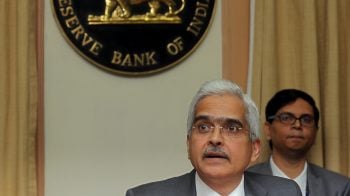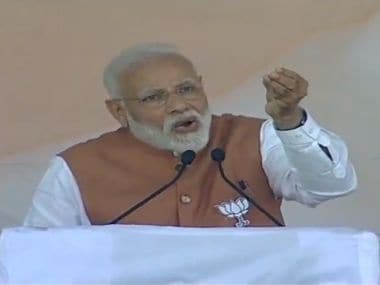In an interview with Moneycontrol, the father-son duo emphasize on why bigger IT companies need to innovate as smaller players are agile and are getting more opportunities
At an age where digital is the only way forward, there is a need for better synergy between Indian IT majors and the startup ecosystem in the country, said Mohandas Pai, Chairman, Manipal Global Education and former CFO of Infosys.
In an increasingly connected world, there is a huge demand for new-age technologies such as automation, artificial intelligence, big data, analytics, cloud computing and machine learning. IT majors are investing heavily in this space to keep up with the changes.
However, it is difficult for bigger companies to innovate given their sheer size and complex legacy systems. But smaller players are able to as they are more agile and small. This means that smaller players are getting more opportunities as legacy companies realise the need for digital.
At the same time, this does not mean that bigger IT service providers are not needed, he quipped. “You need the stability of bigger players,” Pai, who is the Chairman of Aarin Capital that has invested in startups like Byju's, ZoomCar and YourStory, said.
IT majors are stepping up and are making their transition to digital. In fact, digital now contributes about 30 percent of total revenue. However, they are not fast enough to make use of the opportunity it offers. Also, many of them continue to be constraint by their size and inability to move faster.
This is where startups and smaller companies can help bridge the gap. Many of these IT majors such as HCL Technologies are acquiring companies to leverage their digital portfolio and add digital capabilities.
Foreign allureBut most acquired firms are overseas companies and startups, and not Indian firms, and that should change, Siddarth Pai, son of Mohandas and also an angel investor, said.Siddarth Pai, founding partner of 3one4 Capital, an early stage venture capital firm, said, "There is a need for better focus on Indian startups. Participation from large listed companies in the Indian startup ecosystem is important." 3one4 Capital has invested in startups such as Tripoto, BetterPlace and Tracxn.
Bengaluru, termed Silicon Valley of India, is home to more than 7,000 startups with $20 billion in funding, excluding the much-talked about Walmart-Flipkart deal. The US retail giant picked up 77 percent stake in the Indian e-commerce major last year for $16 billion.
"Like Walmart we are already seeing foreign investor such as Alibaba and SoftBank picking up stakes in Indian firms and growing them. Indian companies are clearly lagging behind and not because of lack of funds," Siddarth, who is an expert council member at iSpirt, a think tank focussed on startups and the IT industry, said.
Indian investment in startups account only for about 5-8 percent. However, large Indians companies are sitting on huge cash reserves in excess of Rs 3 lakh crore and are unwilling to invest.
While it could be attributed to risk-averse nature of Indian companies, there is a huge disconnect when it comes to the question of buy versus build. “Indian companies would rather build in-house than buy. This attitude needs to change since when you acquire a company you not only buy the product but also its clients. Across the world, companies are looking at diversifying the business through such acquisitions, whereas we are yet to come out of that mind,” Siddarth added.





























































